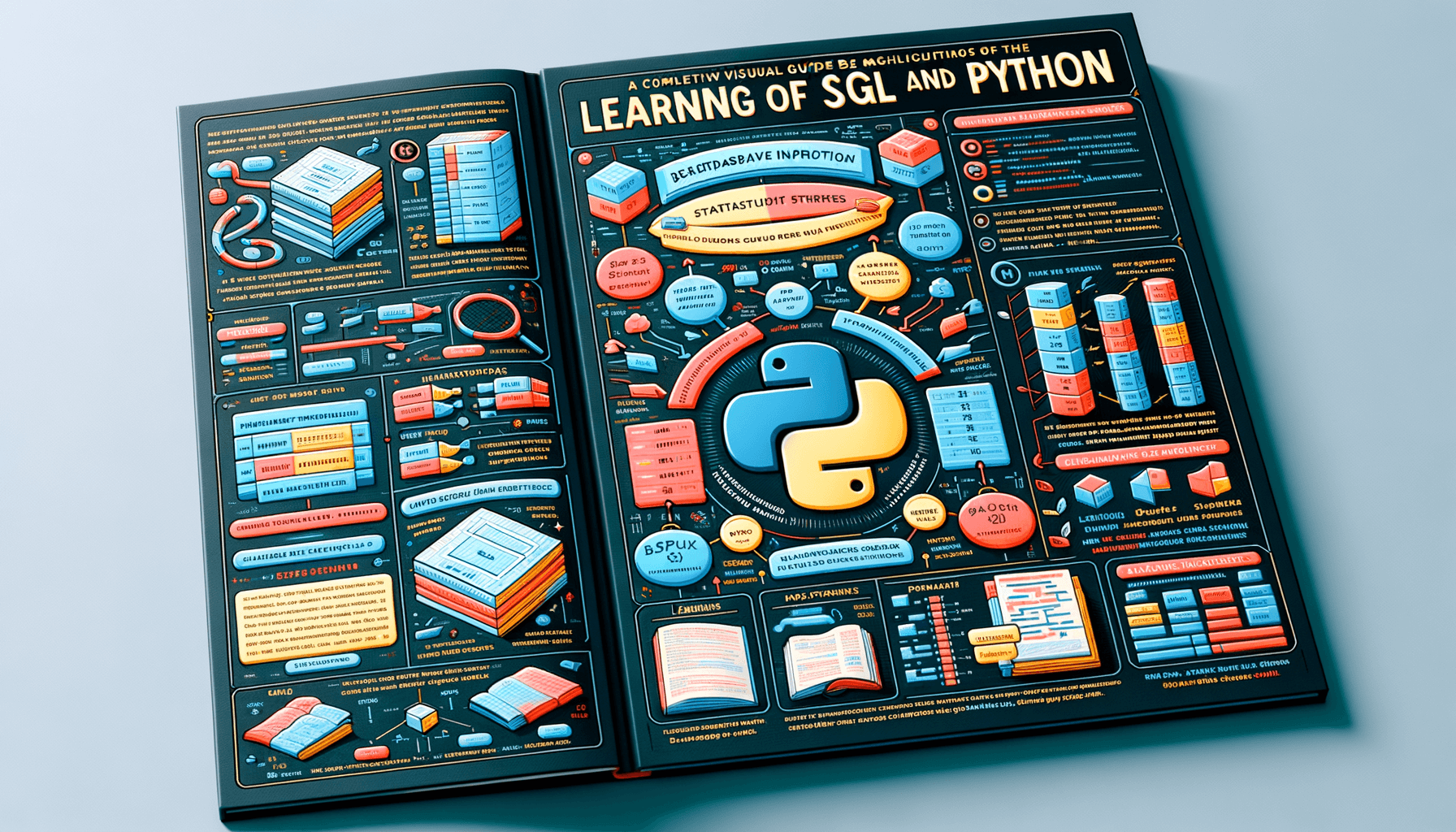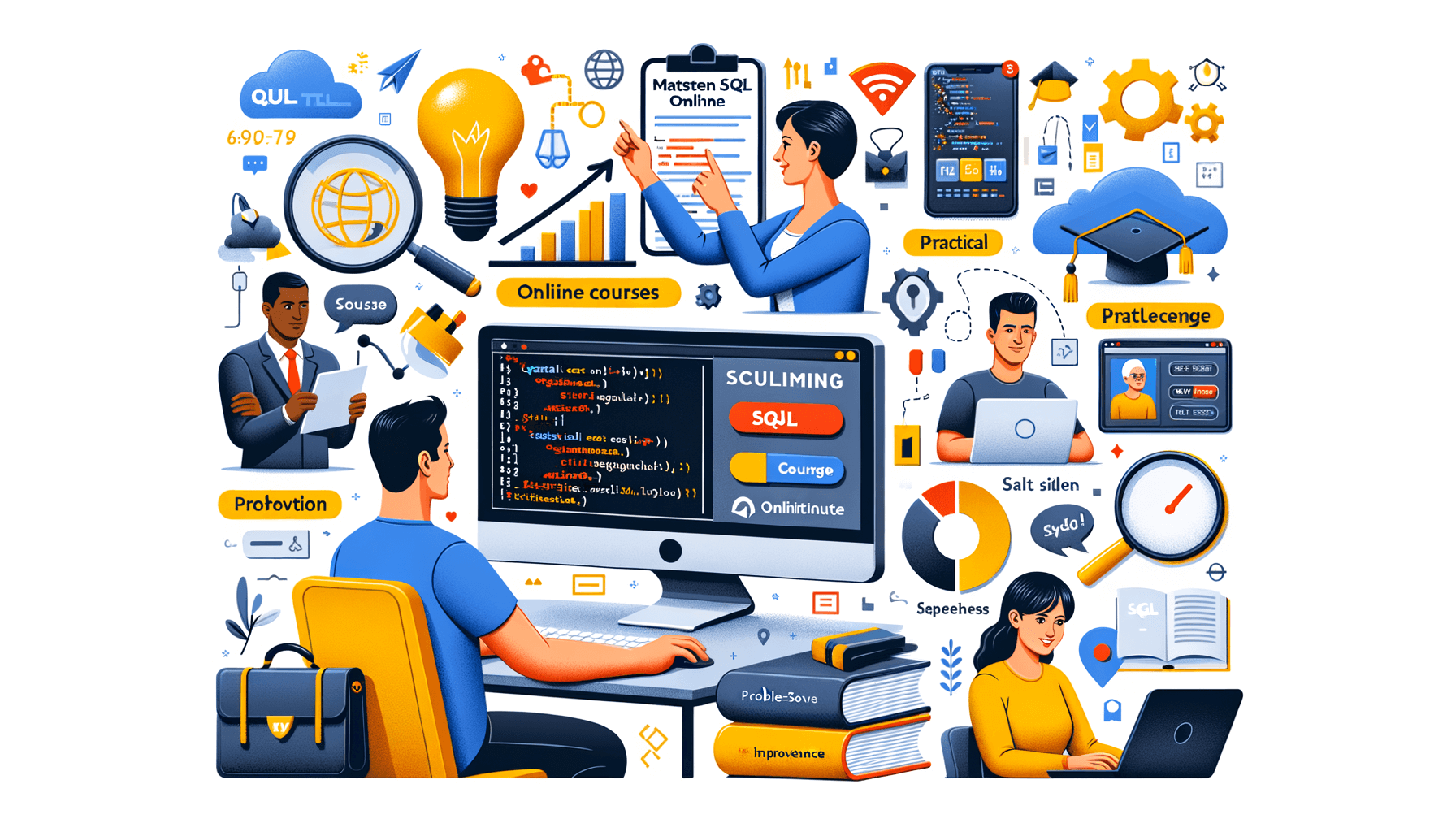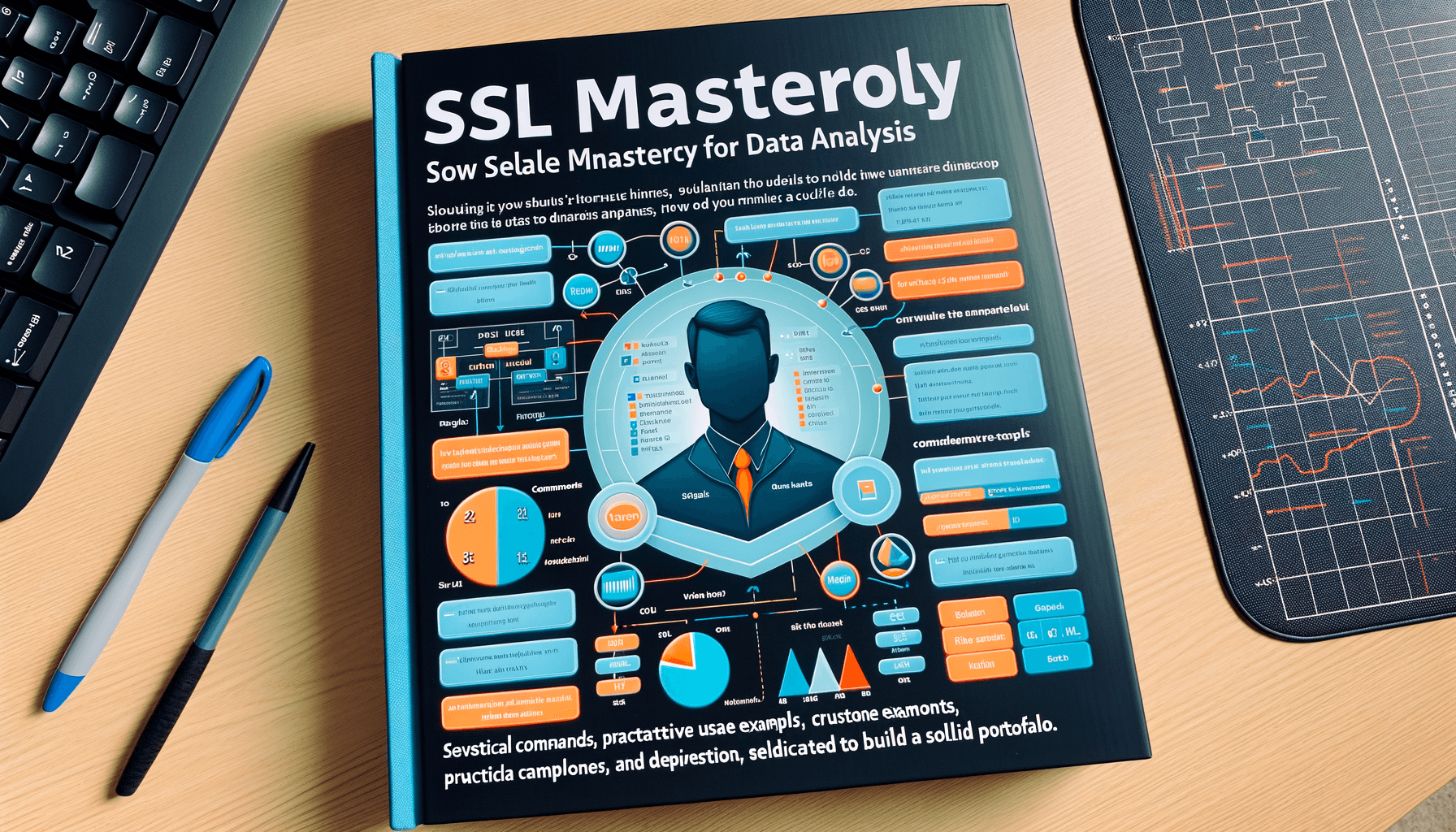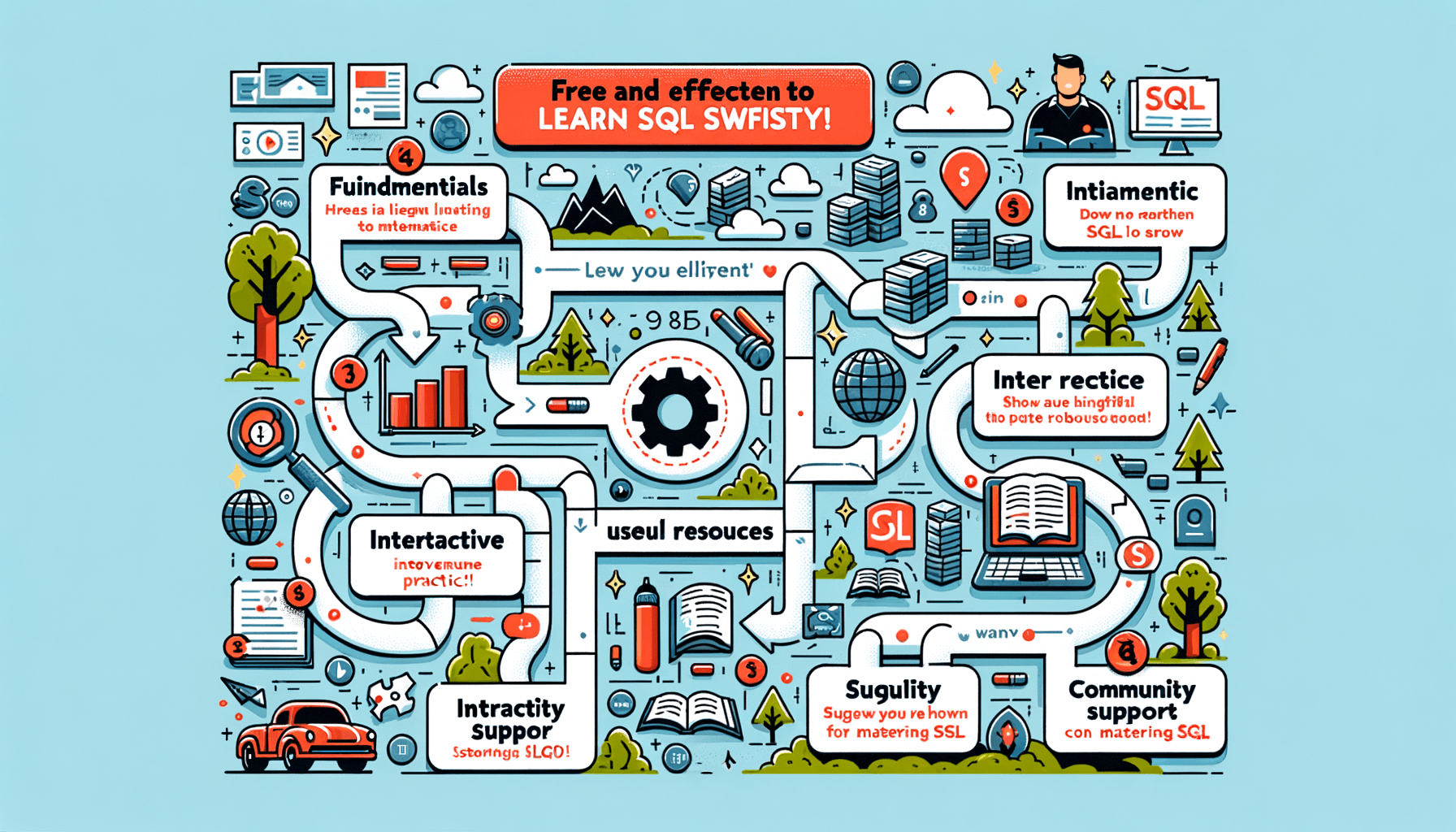A big variety of articles and resources

How to Learn SQL and Python: A Comprehensive Guide
 Sia Author and Instructor
Learn SQL
Sia Author and Instructor
Learn SQL
9 minute read
Understanding the Basics of SQL and Python
Introduction to SQL
SQL, or Structured Query Language, is the standard language for managing and manipulating databases. Learning SQL is essential for anyone looking to work with databases, as it allows for the specification of various data operations in a clear and efficient manner. SQL is particularly powerful in sorting and retrieving data, making it indispensable for data analysis and business intelligence.
Introduction to Python
Python is a versatile programming language known for its ease of use and readability. It supports multiple programming paradigms and is heavily used in data analysis, web development, and automation. Python's simplicity and robust library ecosystem make it an excellent choice for beginners and professionals alike.
Combining SQL with Python
Combining SQL with Python can significantly enhance your data manipulation capabilities. By using Python's libraries, such as Pandas and SQLAlchemy, you can execute SQL commands within Python scripts to perform complex data manipulations more efficiently. This integration is particularly useful for data analysts and developers looking to streamline their workflows and improve data handling.
Setting Up Your Python Environment
To effectively utilize SQL with Python, setting up the Python environment is crucial. This setup is the foundation for all your future projects and data analysis tasks.
Installing Python
Installing Python is the first step in setting up your Python environment. You can download Python from the official website or use platforms like Anaconda or DataLab for a more integrated environment. DataLab, for instance, allows you to experiment with Python directly in your browser, which is ideal for beginners.
Configuring Python for SQL Integration
Once Python is installed, configuring it for SQL integration involves setting up libraries such as SQLAlchemy or pandas to handle database operations. This setup ensures that your Python environment can effectively communicate with SQL databases, enhancing your data manipulation capabilities.
Essential Python Packages for SQL
Several Python packages are essential for working with SQL. These include:
- pandas: for data manipulation and analysis
- SQLAlchemy: for SQL toolkit and Object-Relational Mapping (ORM)
- sqlite3: for interacting with SQLite databases
These packages help streamline the process of querying and managing databases directly from Python scripts.
Mastering SQL Queries within Python
Basic SQL Commands
Mastering SQL within Python starts with understanding the basic SQL commands. These commands form the foundation of interacting with databases. You'll often use commands like SELECT, INSERT, UPDATE, and DELETE. Familiarity with these allows for effective database management and data manipulation.
Advanced SQL Techniques
To truly leverage SQL in Python, one must delve into advanced SQL techniques. This includes understanding complex queries, such as subqueries, joins, and window functions. Mastering these techniques ensures efficient data analysis and helps maintain data integrity.
Debugging SQL Queries in Python
Debugging is crucial when working with SQL in Python. It involves identifying and fixing issues in your SQL queries to ensure they run efficiently. Techniques include using error logs, testing parts of the query independently, and using Python’s debugging tools. This step is vital for optimizing query performance and ensuring the reliability of your applications.
By integrating SQL with Python, you can enhance your querying capabilities and streamline your data manipulation processes.
Practical Applications of SQL and Python
Data Analysis
In the realm of data analysis, the combination of SQL and Python is particularly powerful. SQL's robust data querying capabilities paired with Python's analytical libraries like Pandas and NumPy allow for deep insights and efficient data processing. Analysts can perform complex analyses and visualize data seamlessly, making it easier to derive meaningful conclusions from large datasets.
Building Data-Driven Applications
The ability to build data-driven applications is one of the most practical uses of SQL and Python. Developers can create dynamic applications that respond to real-time data changes. This integration facilitates the development of applications that are both scalable and responsive, enhancing user experience and operational efficiency.
Automating Database Management
Automating database management tasks with SQL and Python can significantly reduce manual effort and error. Scripts and functions written in Python can automate routine tasks such as data backups, integrity checks, and performance tuning. This not only saves time but also ensures that database systems are consistently maintained at high standards.
By mastering SQL and Python, professionals can automate many aspects of database management, freeing up time to focus on more strategic tasks.
Optimizing Your SQL and Python Code
Performance Tuning
Optimizing SQL and Python code is crucial for enhancing application performance and reducing resource consumption. Focus on indexing strategies and query optimization to significantly improve execution times. Experiment with different conditions and updating multiple columns simultaneously to further enhance database management skills.
Best Practices for Code Efficiency
Adopting best practices in coding can lead to more maintainable and efficient code. Utilize Python libraries and packages for complex data manipulation tasks, which can streamline your workflow and increase productivity. Here are some key practices:
- Use clear and concise code
- Avoid unnecessary database hits
- Implement error handling and logging
Security Considerations
Security is paramount when dealing with data. Ensure that your SQL queries are protected against SQL injection attacks by using parameterized queries. Regularly update your Python and SQL libraries to protect against vulnerabilities. Blockquote:
Always validate and sanitize user input to prevent security breaches.
Learning Resources and Community Support
Online Courses and Tutorials
Online courses and tutorials are pivotal for beginners and advanced learners alike. They provide structured learning paths and often include hands-on projects that help solidify the concepts. Platforms like DataCamp and Coursera offer a range of courses tailored to different skill levels.
Books and E-books
Books and e-books serve as invaluable resources for deeper understanding. They often cover more ground than courses and can be referred back to as reference materials. For SQL and Python, books like "Automate the Boring Stuff with Python" and "Learning SQL" are highly recommended.
Forums and Community Groups
Engaging with forums and community groups can significantly enhance your learning experience. Sites like Stack Overflow and GitHub discussions provide a platform to solve problems, share knowledge, and connect with other enthusiasts. Participation in these communities can lead to faster problem resolution and growth in practical knowledge.
Challenges and Solutions in Learning SQL and Python
Common Pitfalls
Learning SQL and Python can be daunting due to the abstract nature of databases and the need to think in a set-based way. Common pitfalls include misunderstanding the syntax and underestimating the importance of data types, which can lead to significant errors in data analysis.
Overcoming Learning Obstacles
To effectively overcome these obstacles, it is essential to practice regularly and utilize resources like Jumpstart SQL, which offers free introductory lessons. These resources provide a foundation for beginners and include practical training to enhance career skills.
Advanced Problem Solving
As learners advance, they encounter more complex problems requiring deeper understanding and more sophisticated solutions. Structured practice and real-world problem-solving are crucial for mastering advanced techniques in SQL and Python.
Continuing Your Journey in SQL and Python
Keeping Skills Updated
To stay competitive and effective in the field, it's crucial to keep your skills updated. Regularly practice SQL queries and Python scripting, and stay informed about the latest updates and features. Engaging in continuous learning through online platforms can help maintain a sharp edge in your technical abilities.
Exploring Advanced Topics
Diving deeper into advanced topics can significantly enhance your understanding and capabilities. Consider topics like machine learning integration, complex data visualization, and optimization algorithms to broaden your expertise and add value to your projects.
Preparing for Professional Certification
Achieving professional certification in SQL and Python can be a pivotal step in your career. It not only validates your skills but also enhances your professional credibility. Prepare diligently, focusing on key areas such as data-driven decision making and advanced SQL techniques, to ensure success in certification exams.
By continuously updating your skills, exploring new areas, and achieving certifications, you can ensure a thriving career in the ever-evolving field of data analysis and programming.
Conclusion
In conclusion, mastering SQL and Python is a transformative skill set that can significantly enhance your ability to handle, analyze, and derive meaningful insights from data. This comprehensive guide has equipped you with the foundational knowledge and practical skills needed to effectively integrate SQL within Python environments. As you continue to practice and explore the vast capabilities of these tools, you'll find yourself better positioned to tackle complex data challenges and contribute to data-driven decision-making processes in any professional setting.
Frequently Asked Questions
What is SQL and why is it important for Python users?
SQL (Structured Query Language) is a programming language used for managing and manipulating databases. For Python users, understanding SQL is crucial as it allows them to interact with databases directly from their Python scripts, enabling advanced data analysis and manipulation.
How can I start learning SQL and Python?
To begin learning SQL and Python, start with basic tutorials and online courses that cover the fundamentals of both languages. Practice by working on small projects or solving problems that involve database interactions using Python.
What are some common challenges when learning SQL and Python together?
Common challenges include understanding the syntax differences between SQL and Python, effectively managing database connections, and optimizing queries for performance. It's also crucial to learn how to handle errors and debug SQL queries within Python scripts.
Are there any recommended resources for learning SQL within Python?
Yes, there are numerous online courses, books, and tutorials specifically designed to teach SQL within Python. Websites like Codecademy, Coursera, and Udemy offer comprehensive courses that combine both SQL and Python training.
What practical applications can SQL and Python be used for?
SQL and Python are extensively used in data analysis, building data-driven applications, and automating database management tasks. They are powerful tools for any developer looking to enhance their ability to work with large datasets and perform complex data manipulation.
How can I integrate SQL with my Python projects?
To integrate SQL with Python, you can use libraries such as SQLAlchemy or pandas to connect to and interact with databases. These libraries provide tools to execute SQL commands directly from Python, making it easier to incorporate database functionality into your projects.
Related Articles

10 Effective Tips on How to Learn SQL Online
9 minute read

A Comprehensive Guide to Learn SQL for Analysts
8 minute read


